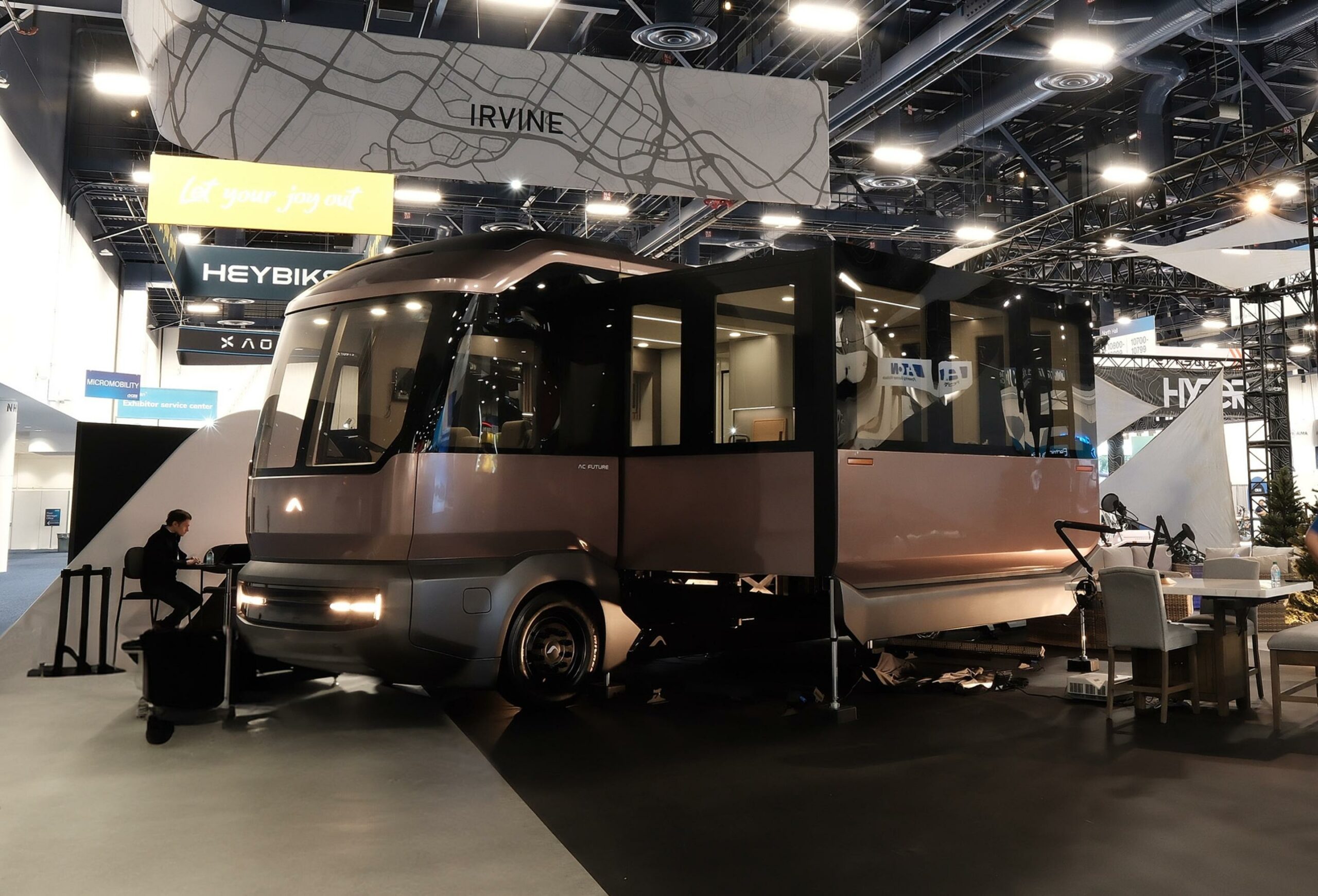The Ai-THD camper, which I would be tempted to name the Mahi-Mahi (or maybe Robo Cop) thanks to its tall forehead and tight lips, is more than just another concept. It is a bold step into the future of not only travel but also living, and it gives us the fizz. AC Future recently unveiled the Ai-THD in the flesh, as it were, at CES 2025, held in Las Vegas from January 7 to 11. The model, a variation of AC Future’s modern abode range, aims to combine energy efficiency with a streamlined user experience.
Preliminary releases indicate that the Ai-THD’s powertrain is built around a fully electric drivetrain that supports both daily commutes and longer journeys (while the company’s website hints, with few details, that a diesel-powered variant will be available). While precise range figures remain under wraps, AC Future officials have hinted at performance capabilities designed to meet the evolving demands of environmentally conscious drivers.
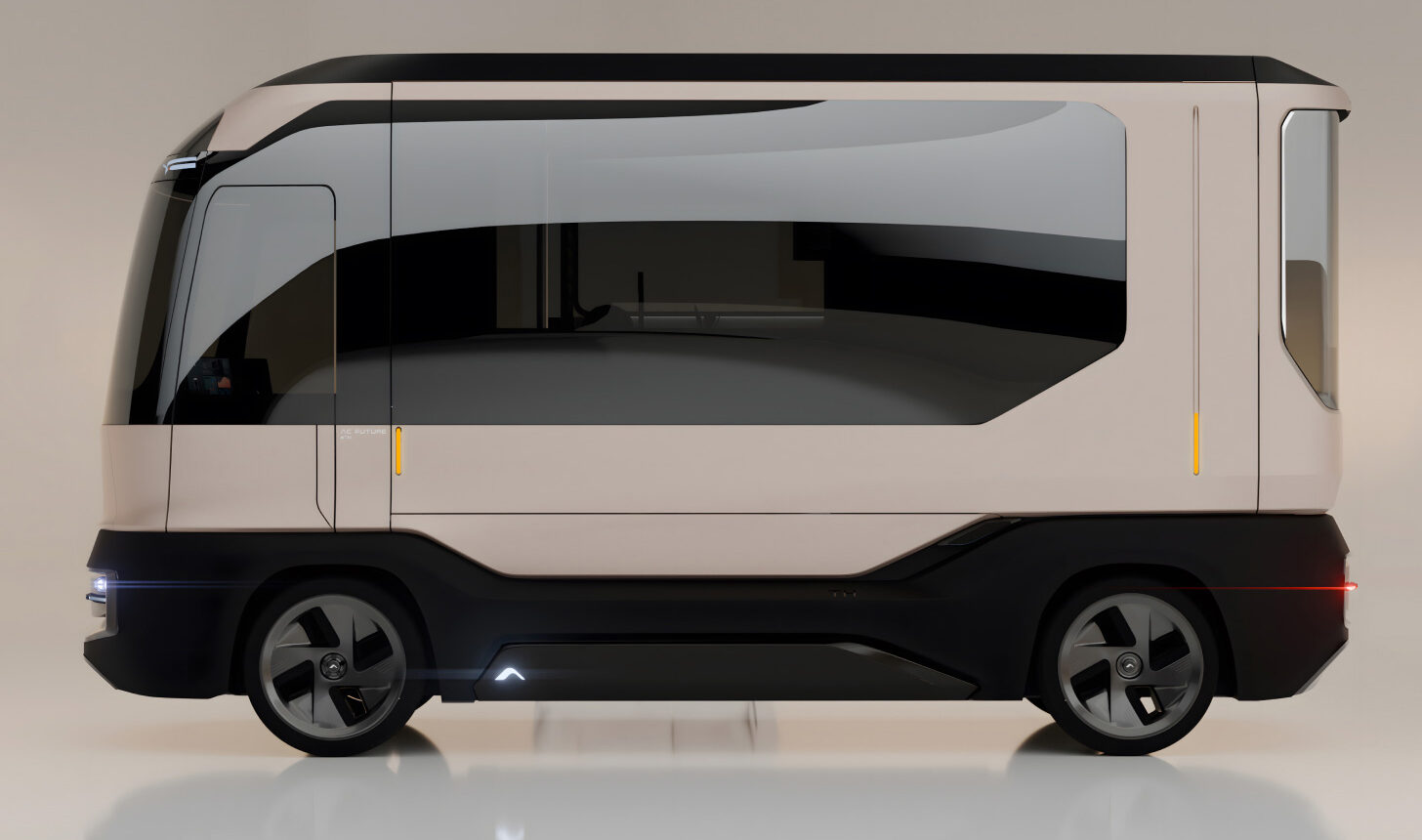
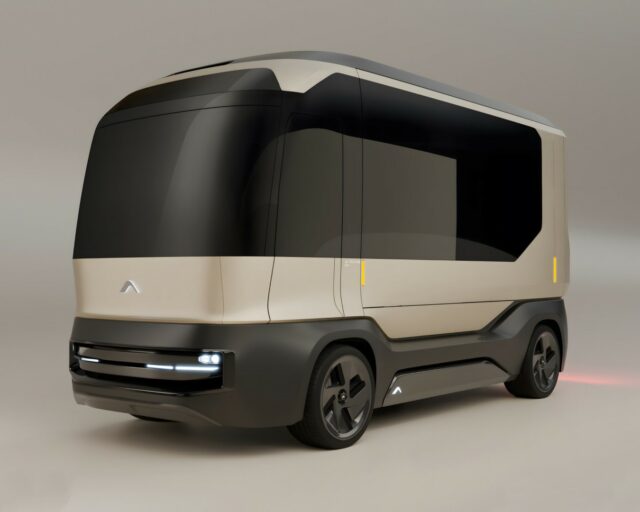
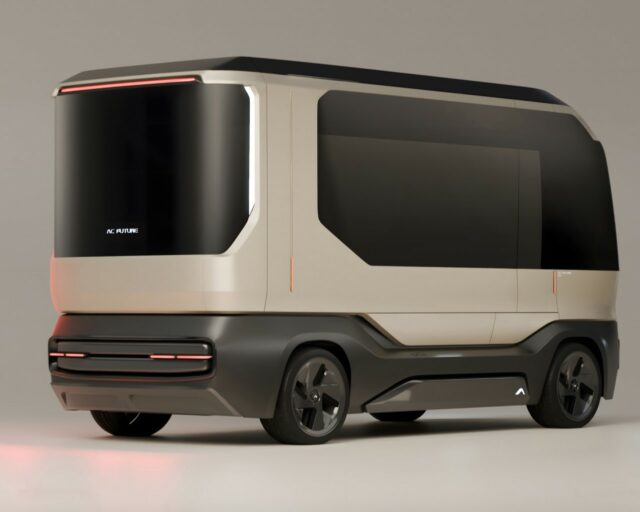
Designed to prioritize efficiency from the inside out, the Ai-THD’s exterior emphasizes aerodynamic contours that could help enhance both range and handling and reduce drag, thereby extending the distance the vehicle can travel on a single charge. Inside, the cabin offers a modern, spacious, and intuitive layout, featuring a digital display that consolidates vital information such as speed, battery status, and navigation updates. This centralized approach, which is intended to limit driver distraction, may also simplify routine procedures like checking charge levels or adjusting entertainment settings. The dashboard essentially consists of a steering wheel and a small screen, with not a button or stalk in sight.
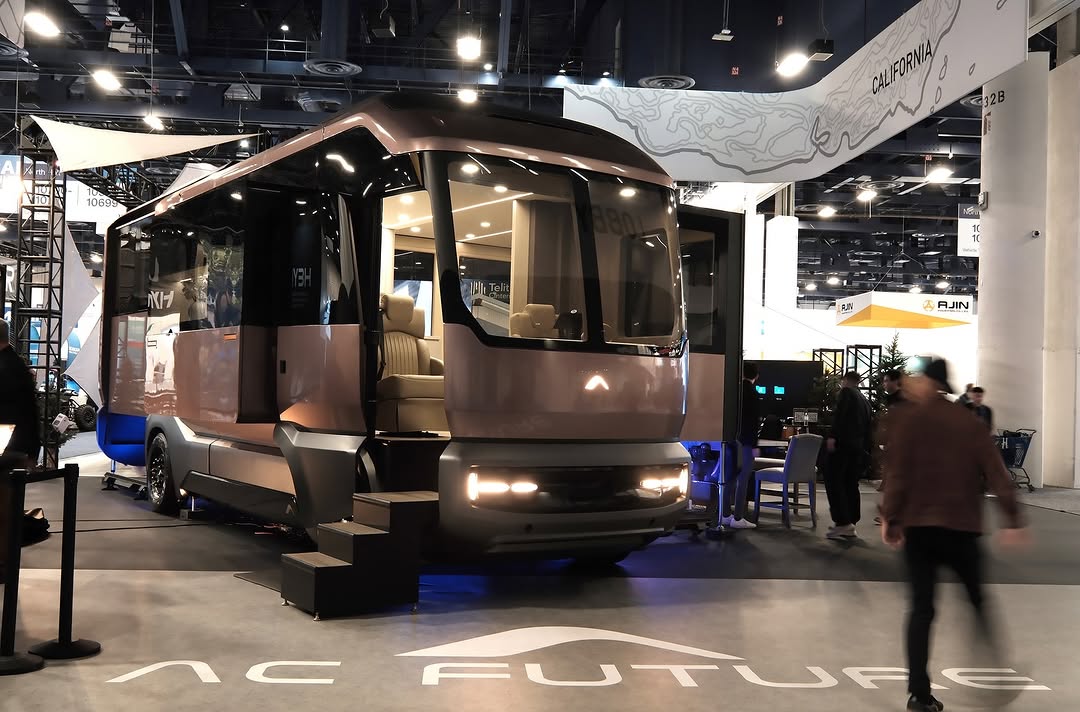
AC Future has also emphasized what it calls a “forward-thinking approach” to technology. The vehicle features a proprietary AI assistant known as Futura, which controls lighting and manages operational tasks and resources. The company has reportedly integrated advanced safety features into the Ai-THD, though official statements have not yet detailed the full suite of driver-assistance capabilities. The final production model will likely include adaptive cruise control, lane-keeping assistance, and automatic emergency braking to align with current market expectations.
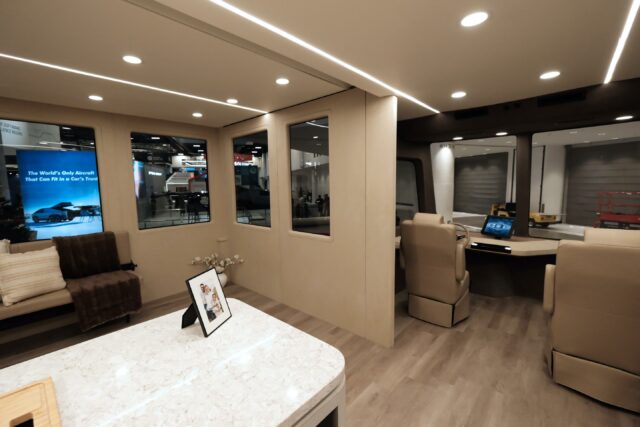
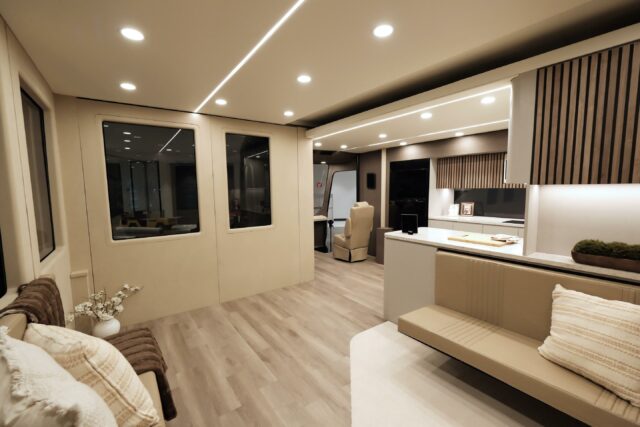
Thanks to pull-out sections at the rear and on both sides, the bus-sized RV expands into a 400-square-foot living space that includes a bedroom, a bathroom with shower, a living room, a kitchen with a full-sized refrigerator, a two-burner induction stove, and a microwave, as well as a washer/dryer in the bathroom. A complete HVAC system, paired with high-efficiency insulation, keeps the interior at a comfortable temperature.

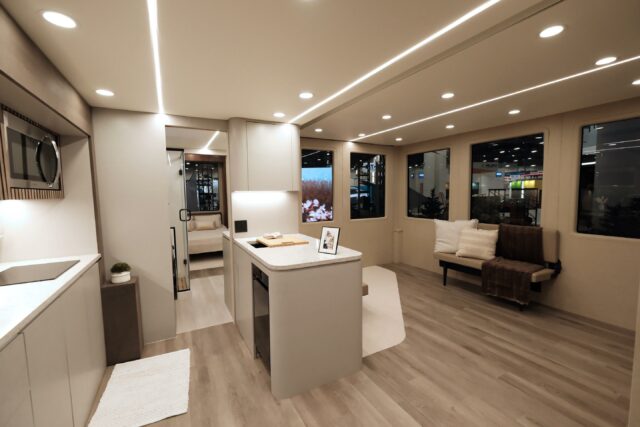
AC Future has addressed power requirements by installing solar panels across the roof. These panels allow the Ai-THD to generate around 25 kilowatt-hours of energy in a day and can also be connected to an external power source if solar energy is insufficient.
All models of the Ai-TH include an atmospheric water generator that can extract up to 15 gallons of water per day from the air, depending on humidity. The Ai-THD also recycles gray water and contains a holding tank. In theory, these units can function as fully self-sustaining living pods, gathering necessary resources from their surroundings.
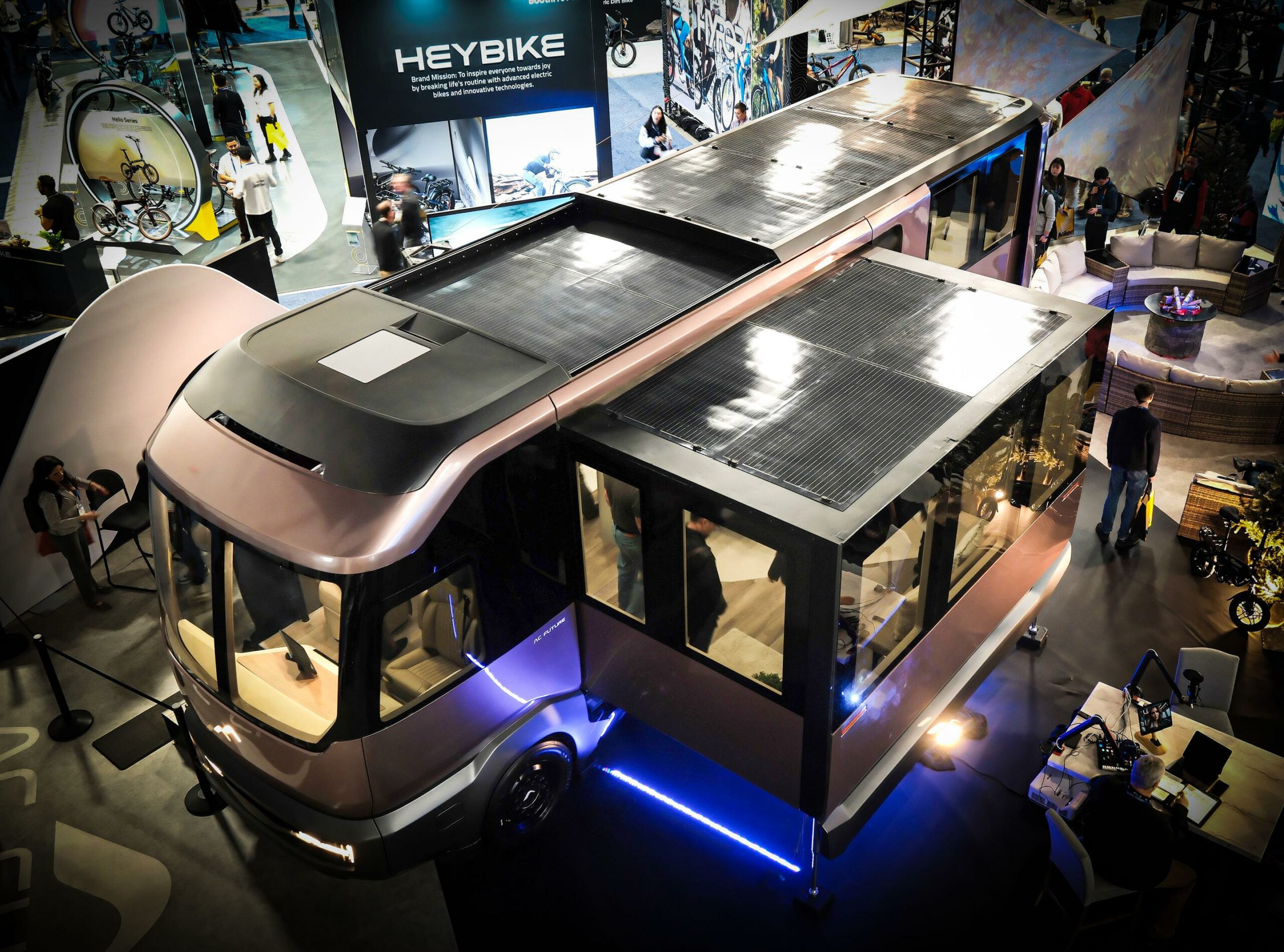
The Ai-THD is expected to enter production in early 2025 and will cost $ 300,000 and up; reservations are now open.
Read More: Gerber Overland Bundle :: Field Tested
Our No Compromise Clause: We do not accept advertorial content or allow advertising to influence our coverage, and our contributors are guaranteed editorial independence. Overland International may earn a small commission from affiliate links included in this article. We appreciate your support.


